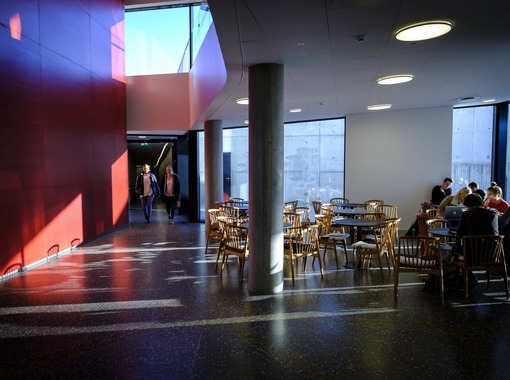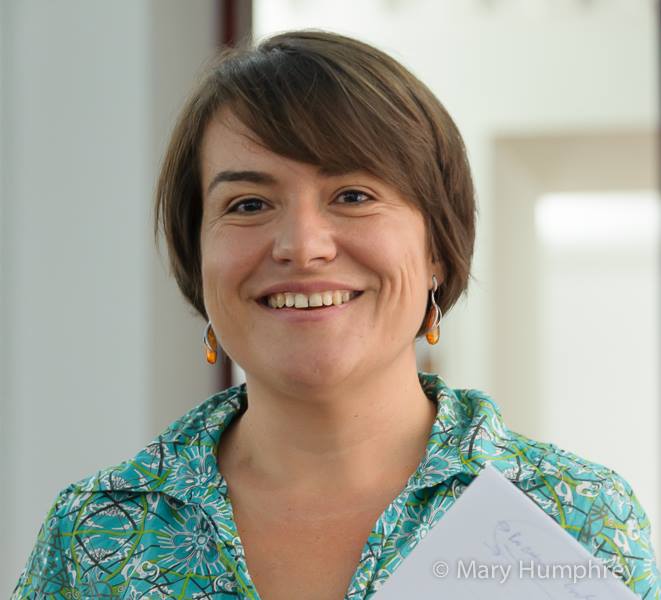"Gypsies have been always portrayed between two extremes – a very exotic one (the colourful and free spirited gypsy) and a very negative one (stealing, begging, living marginal way of life), but in fact most of the Roma around the world are just living the life of the lay people – they are settled citizens, have housing, are educated and do the jobs that all people do." So says Sofiya Zahova, a postdoctoral researcher at the Vigdís Finnbogadóttir Institute of Foreign Languages at the University of Iceland, who has been involved in organising a major conference on the Roma people which takes place at the University of Iceland between 15 and 17 August.
The conference, which is held in Veröld – House of Vigdís, focuses on the position, history, culture and language of the Roma. This is the largest annual conference on Romani studies in the world. 140 participants from 33 different countries attend the conference, which has been organised by the oldest scientific organisation in the field of Romani studies, the Gypsy Lore Society, in collaboration with the University of Iceland, the Vigdís Finnbogadóttir Institute of Foreign Languages and the City of Reykjavík.
Roma, or Gypsies as many people know them, are a people that make up the largest minority group in Europe. The largest numbers of Roma live in Eastern Europe, but they have also been renowned for migrating in search of a better life. Roma have their own language, Romani, which is one of the topics of discussion at the conference.
Some people will undoubtedly think it odd to hold a conference on Romani studies in Iceland, but Sofiya points out that at the University of Iceland there has been considerable research in the field in recent years, not least due to international collaboration and academic staff exchange. "There have been a couple of PhD students and post-docs working in the field. The School of Humanities and the Vigdís Finnbogadóttir Institute have initiated and/or been involved with several international projects related to Roma culture and history. The Vigdis Finnbogadóttir Institute places great emphasis on the importance of language as a bridge and core of any culture, especially when it comes to small languages and stateless communities", says Sofiya, who herself manages several projects related to Romani studies grouped under the title Roma in the Centre.
Roma among migrant labourers in Iceland
Sofiya points out that the conference provides a great opportunity for scholars in Iceland to strengthen international conference in the field of Romani studies, since the leading academics in the world in this field will be attending. "Iceland is already part of all global processes. Processes such as labour migration of EU citizens and international adoption have brought Roma to Iceland, and actually Romani families from Romania, Bulgarian, Poland have been living and working here as part of the East European labour migrant communities. There is an expertise in both practical and academic matters that Icelandic society needs and the conference is a great opportunity for transfer of knowledge, networking and establishing collaborations," says Sofiya.
Romani studies is interdisciplinary in its nature, and the conference includes research involving many different fields within the humanities and social sciences, as is evident from the conference programme. "Among the topics addressed at the conference are the fate of Roma in the Second World War and the Nazi genocide, the richness of Romani literature in recent decades, and linguistic research into the Romani language. There is also a panel on how Romani studies can learn from methodologies, epistemologies, practices, debates and terminologies used in other subjects such as indigenous studies, gender studies, critical race studies and Jewish studies," says Sofiya.
The conference, which is held in Veröld – House of Vigdís, focuses on the position, history, culture and language of the Roma. This is the largest annual conference on Romani studies in the world. 140 participants from 33 different countries are expected to attend the conference, which has been organised by the oldest scientific organisation in the field of Romani studies, the Gypsy Lore Society, in collaboration with the University of Iceland, the Vigdís Finnbogadóttir Institute of Foreign Languages and the City of Reykjavík.

Women at the forefront of Romani literature
Sofiya herself presents a lecture at the conference. Her research has focused on Romani culture, literature and identity. Sofiya worked for two decades as a manager in a foundation supporting publications in the Romani language, and through that work she became acquainted with Roma authors and Romani literature and culture. She also learned the language and eventually decided to devote herself to research in the field of Romani culture. She completed a PhD in South Eastern European Ethnology and in 2016, became the first postdoctoral researcher to be hired at the Vigdís Finnbogadóttir Institute. For the last three years, she has worked at the Institute managing research which focuses on the global development of Romani literature and creating a database of publications in the language. "Among the outcomes of my research is that although Romani language literature is a rather recent phenomenon, its development is neither unique nor without parallels when compared to other minority-language literatures, which developed alongside nation-building in Europe. Similarly to all other European language, including Icelandic, the first Romani language printed texts featured folklore materials collected and published by folklorists and Biblical translations in Romani dialects," she says. The Romani literary tradition differs, however, from many other peoples in the sense that female authors were often pioneers in writing about certain topics, e.g. the Holocaust, and in some countries, in fact, female Roma authors outnumber the males.
Discussion of Roma needs a more nuanced approach
Gypies and Roma have been viewed rather negatively in Western countries. Sofiya says that there are many, often interrelated, reasons for this, both historical and contemporary. "Roma/Gypsies in Western Europe have been often viewed and treated as the ultimate Other, the unwanted dark-skinned foreigner that either needed to be civilised, cultivated or dispelled, with physical persecution that culminated in the Holocaust when many Roma/Gypsies were persecuted or killed. But in other regions, such as in Eastern Europe, where Roma have been living settled among other communities for many centuries, the attitude is different. For people who come from this region, like me, co-habitation with Roma has always been the norm," she says.
Asked whether increased research in Romani studies has changed attitudes at all, Sofiya says that the Roma rights movement and increased discussion of human rights in Europe has opened people's eyes in recent decades to the diversity of Roma and their culture. Roma have certainly become more visible through the media, politics and activism, but not necessarily in a positive sense. "Sometimes, in both public and academic discourse, light has been shed only on the most problematic issues, such as begging, marginalisation, poor living conditions, and lack of education. We need a more nuanced approach and this is exactly what will happen at this conference."
No research into Roma in Iceland
Asked whether any research has been conducted into the arrival and status of Roma in Iceland, Sofiya reports that the groups who have settled here have been a sort of hidden people. "My experience in researching Roma in Iceland has shown that a territory such as Iceland that is considered Roma-less is just an under-researched one. There has not been any research on Roma in Iceland in the past. There are, however, written records of Roma coming to Iceland in the early 20th century that match a photo of Roma in Seyðisfjörður from the same period. My preliminary research shows that historically Iceland has been part of the Nordic routes of Roma groups who were living in the Nordic countries in the past, but maybe there were just not enough economic niches for them here. Or maybe they just didn't like the weather?" says Sofiya with a smile.




